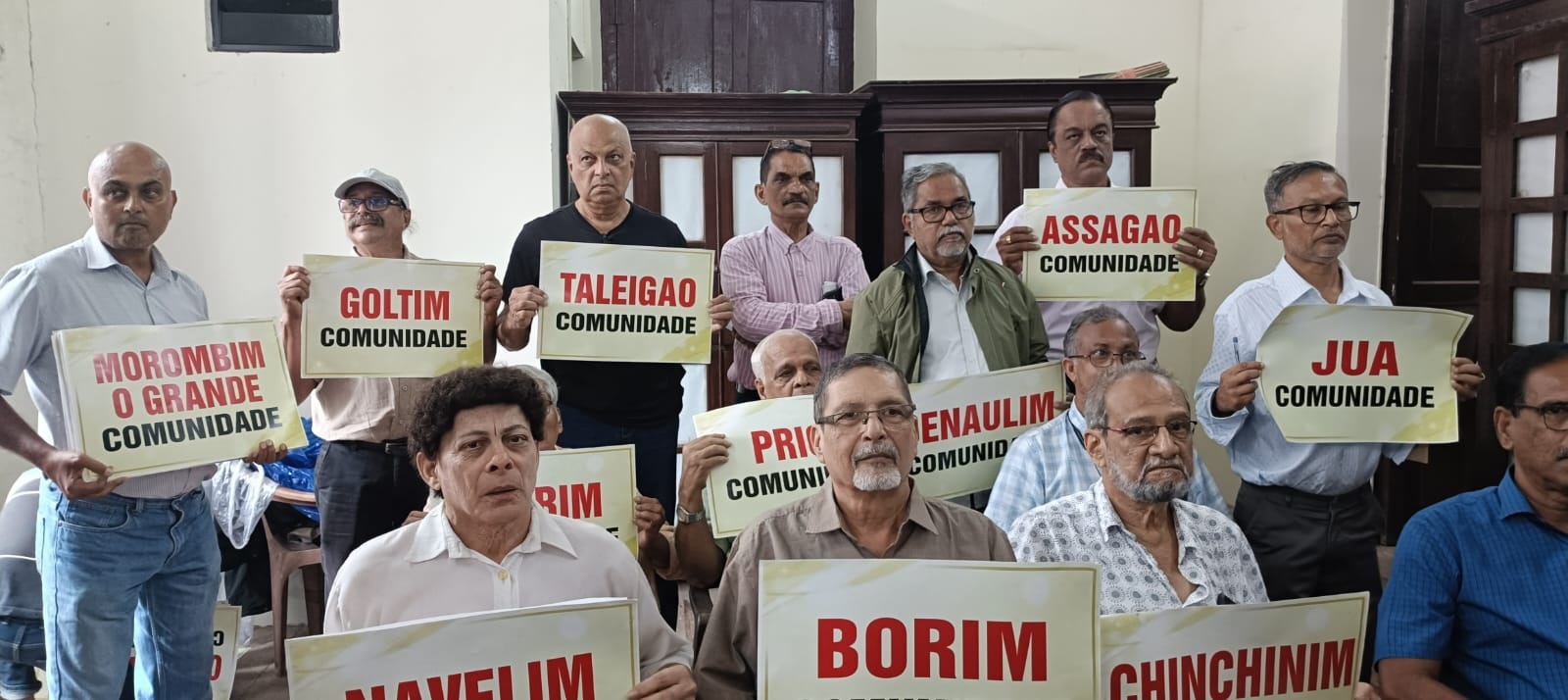
Critics label the new law “legalised plunder” of comunidade lands.
The passage of the amendment to Legislative Diploma no. 2070 dated April 15, 1961 (Code of Comunidades) by the Goa Legislative Assembly last week represents a watershed moment in Goa’s post-liberation legal history—not for its progressiveness, but for its regressive legitimisation of property usurpation through a legislative fiat.
Comunidades, a unique system of collective ownership that predates the arrival of the Portuguese, hold a significant place in Goa's history. The Comunidades have survived, unlike some traditional institutions dismantled during colonial rule, managing about 30% of Goa's landmass through democratic processes that often put modern governance systems to shame.
The insertion of Article 372-B has created an unprecedented mechanism for converting illegal occupation into legal ownership. The provision targets “landless persons” who constructed dwelling houses on Comunidade land before February 28, 2014, without a lawful grant.
While the humanitarian rhetoric in the bill’s statement of objects and reasons may sound compelling, the legal architecture reveals a more troubling reality: systematic grab of Comunidade land through administrative coercion disguised as consensual regularisation.
The proposed law directly contradicts the Supreme Court’s recent guidance on regularisations of unauthorised constructions. In Rajendra Kumar Barjatya v. U.P. Avas Evam Vikas Parishad, the Court explicitly stated that regularisation schemes for unauthorised constructions should be a “one-time measure.”
Yet Goa's legislative history reveals a troubling pattern: Article 372-A was inserted in 2001 with a cut-off date of June 15, 2000, promising finality. Now, Article 372-B advances this cut-off to February 28, 2014, directly violating the Supreme Court's “one-time” principle. This cyclical approach creates perverse incentives, encouraging future violations by establishing expectations of repeated regularisation—precisely the outcome the Supreme Court sought to prevent.
Next, the amendment inherently contradicts the Supreme Court's categorical prohibition on regularising common land encroachments. In Jagpal Singh v. State of Punjab, the Court unequivocally held that regularisation of illegal encroachments on common village lands (our then Chief Secretary stated on affidavit that, in Goa, these are Comunidade lands) should not be permitted under any circumstances, emphasising that such illegalities cannot be regularised even if they had subsisted for many years.
The apex court specifically directed all State Governments to prepare schemes for the eviction of illegal occupants from such community lands, stating that “long duration of illegal occupation or huge expenditure in making constructions thereon or political connections must not be treated as justification for condoning this illegal act or for regularising the illegal possession.”
The constitutional and legal violations are manifold and blatant. The “deemed consent” provision—where the Comunidade’s silence for 30 days constitutes agreement to regularisation—violates every principle of property law. Our Constitution protects private property rights, but this bill creates a legal fiction where non-response equals consent to permanent dispossession. It violates the constitutional guarantee of equality by creating preferential treatment for law-violators over law-abiding citizens.
Those who mortgaged futures to purchase small plots and build their homes legally find themselves systematically disadvantaged compared to those who grabbed land illegally. The Government, either by itself or through its Administrator, can force land transfers even when Comunidades explicitly refuse consent. This colonial-era power grab would make even the Portuguese proud!
From a governance perspective, the amendment represents a catastrophic policy failure. Instead of addressing landlessness through proper urban planning, affordable housing schemes, and regulated land markets, the State is simply transferring the burden to the Comunidades.
The message conveyed is loud and clear: in Goa, encroachment is the most viable path to land ownership, while legal procedures are reserved for those who are naive. This creates a moral hazard that will incentivise and motivate future violations, gradually eroding respect for property rights across society. Other privately-held lands could follow.
The Court's intervention is inevitable to protect constitutional principles that our Government seems increasingly willing to abandon for short-term political gain. The choice facing Goa is whether we will uphold the rule of law or surrender to the politics of legalised plunder.
(The writer is president of the comunidades of Margao, Aquem, Davorlim and Dicarpale)